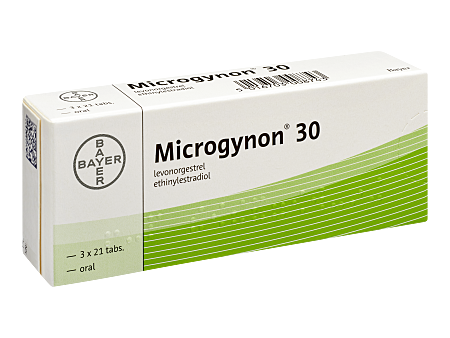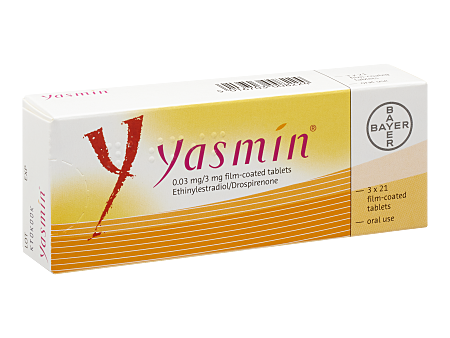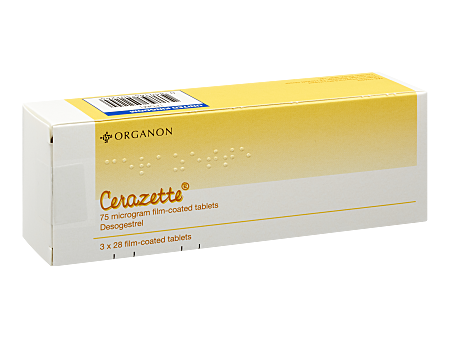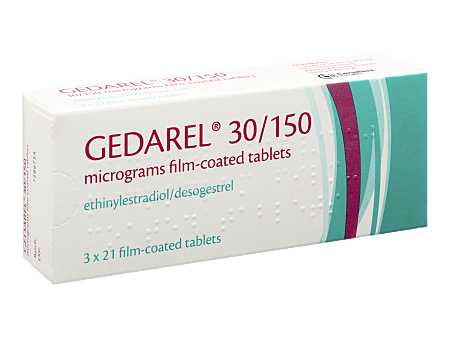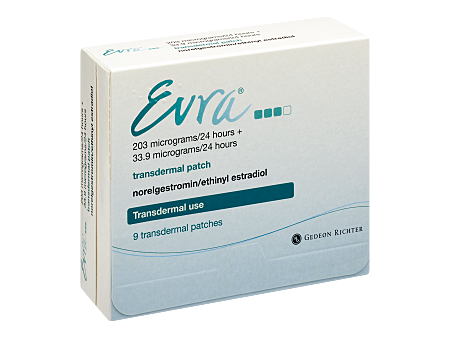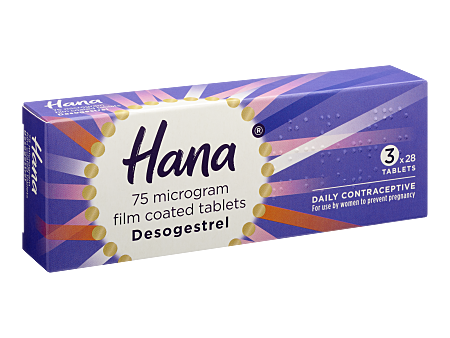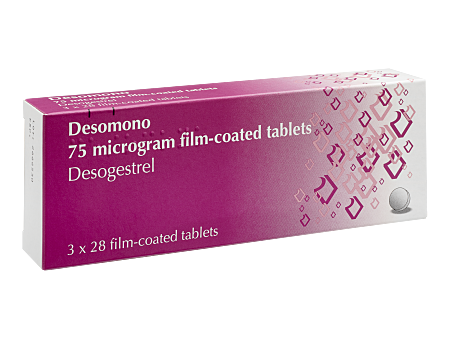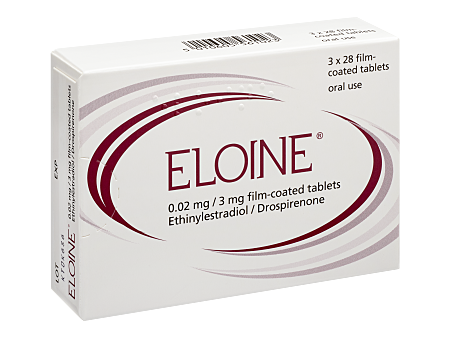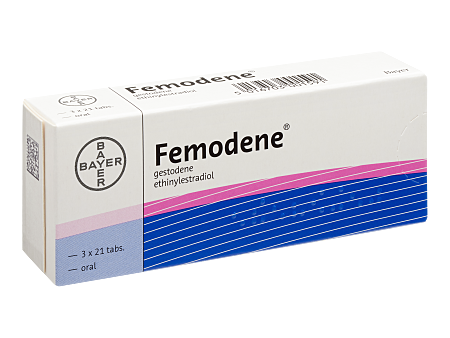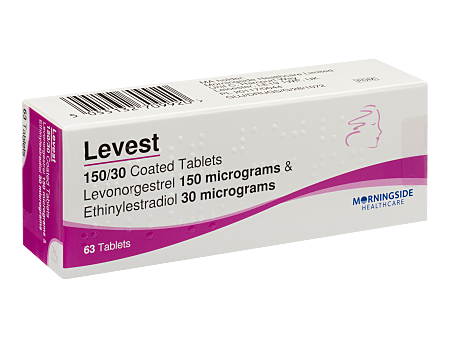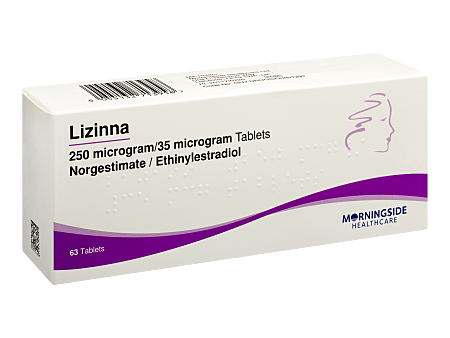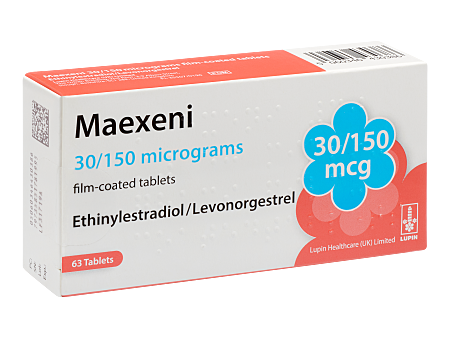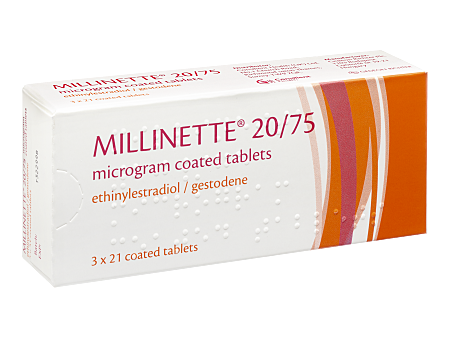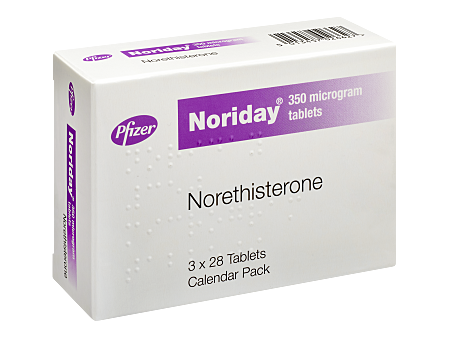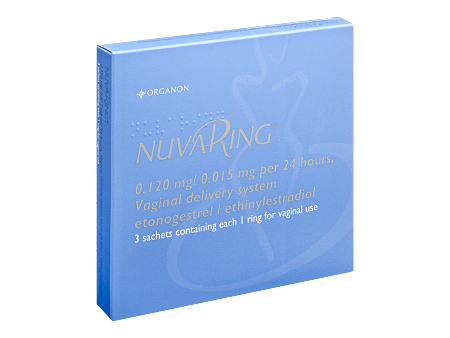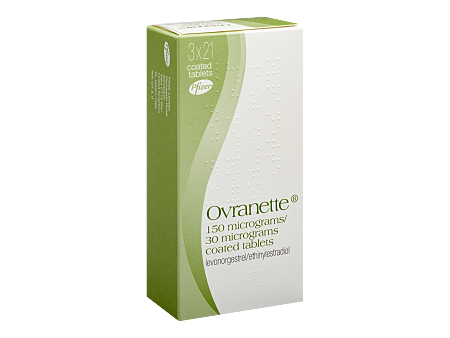What is the Mini Pill? (Progestogen-only Pill)
The mini pill, also known as the progestogen-only pill (POP) is a daily oral contraceptive pill that contains a man-made version of progesterone. Progesterone is one of the female sex hormones involved in managing the menstrual cycle. When taken correctly, the mini pill is more than 99% effective at preventing pregnancy.
There are 2 types of mini pills depending on which kind of progestogen they contain:

How does the mini pill work?
The mini pill works to prevent pregnancy in several ways. It:
- thickens the cervical mucus making it difficult for sperm to enter the womb and reach an egg
- It thins the lining of the womb making it hard for any fertilised egg to securely attach and stay in place
- stops ovulation by preventing an egg from leaving the ovaries; stopping up to 60% of cycles in people who use the levonorgestrel pill and up to 97% of cycles in people who use the desogestrel pill
What’s the difference between how the combined pill and mini pills work?
The main difference between the combined contraceptive pill and the mini pill is the hormones they contain and how they work. In particular, the combined pill stops ovulation more consistently than the mini pill. Despite this, both can reliably prevent pregnancy when taken correctly.
The mini pill contains 1 hormone, progestogen. It works by thickening the cervical mucus and thinning the womb lining to stop sperm reaching an egg, and attaching itself in the womb. In some cases, the mini pill can also stop ovulation from occurring.
The combined pill contains 2 hormones, oestrogen and progestogen. These hormones work together to stop an egg being released from the ovaries (ovulation).
Because combined pills contain an extra hormone (oestrogen), they come with additional oestrogen-related side effects and benefits, such as lighter less painful periods and improvements to acne.
View Contraceptive Pill Treatments
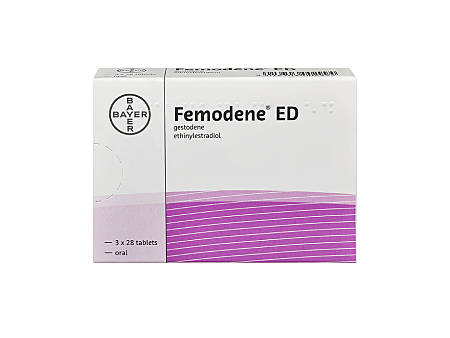
Femodene taken every day without a pill-free break
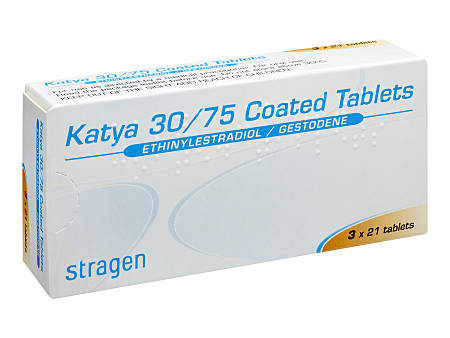
A good option for heavy, painful or irregular periods
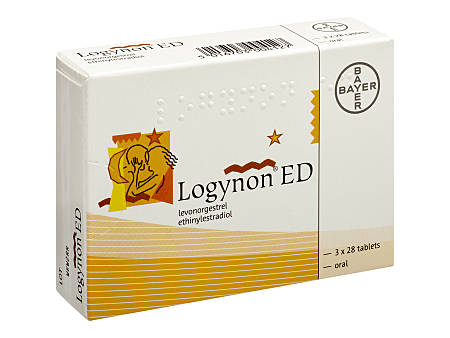
Logynon taken every day without a pill-free break
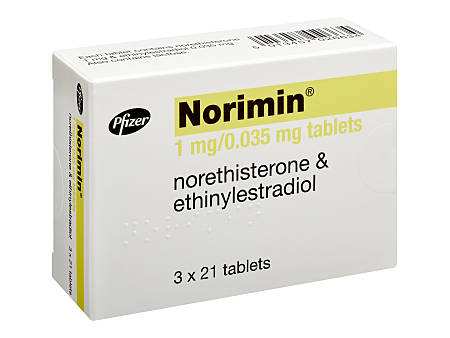
Can lead to lighter and less painful periods

Can improve period-related problems
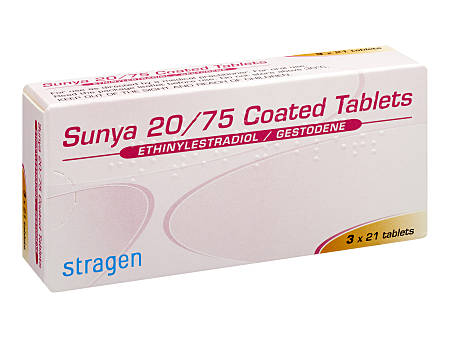
A combined pill with fewer oestrogen-related side effects
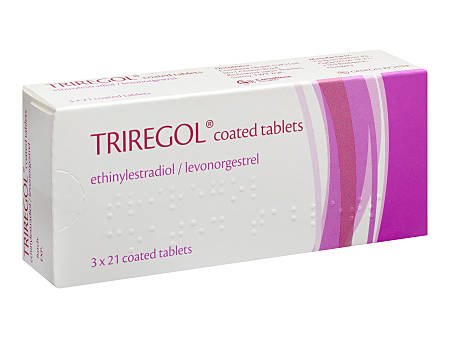
A triphasic combined contraceptive pill

Get advice from a doctor on picking a pill

Please check your spelling or try another treatment name.
How effective is the mini pill?
When taken correctly, the mini pill is more than 99% effective at preventing pregnancy. This means less than 1 in 100 people will get pregnant in a year when using it perfectly. However, the mini pill is likely to be closer to 92% effective, if you become unwell with sickness or diarrhoea whilst taking the pill.
Which is more effective, the combined pill or the mini pill?
Research shows that when comparing the typical use of combined pills and mini pills, there are a similar number of pregnancies per year. So, they are likely to be equally effective, but progestogen-only pills may be more suitable for people who cannot or choose not to take oestrogen.
How to take the mini pill
How you will need to take the mini pill will depend on which type you have been prescribed.
There are two types of mini pill:
- 3-hour mini pill: This type must be taken within 3 hours of the same time each day. Examples include Norgeston and Noriday.
- 12-hour mini pill: This type needs to be taken within 12 hours of the same time each day such as Cerazette or Cerelle.
Depending on which mini pill you are taking, there will be 28 or 35 pills in each pack. To take the mini pill correctly, you should:
- take one pill at the same time every day
- swallow the pill whole with a glass of water if needed
- when you finish the strip, start a new strip the next day – there are no breaks between strips
What can I do to remind myself to take my pill?
If you find it difficult to remember to take the mini pill there are some things you can do to help, such as:
- setting an alarm at the time you should take your pill
- pairing taking your pill with another daily chore or habit, such as brushing your teeth before going to bed
When to start taking the mini pill
You can start taking the mini pill at any time during your menstrual cycle as long as you are not already pregnant.
Before starting your pill, you should read the patient information leaflet that comes with your medication to make sure you know how to take it correctly and to make sure you are protected against pregnancy as soon as you start taking it.
Generally:
- If you take the mini pill during the first 5 days of your period, you should be protected against pregnancy straight away.
- If you take it on any other day of your period, you should use another method of contraception like condoms for 2 days.
What to do if you have used emergency contraception during your current cycle
If you have used the morning after pill (emergency contraception), you should speak to a doctor or pharmacist for advice because some mini pills can affect how emergency contraception works.
If you have used a progestogen-only emergency contraception, such as Levonelle or Levonorgestrel, you should use a condom or avoid sex for 7 days.
You can take the mini pill or other suitable contraception immediately.
If you have used ulipristal acetate, like ellaOne, you will need to wait 5 days before starting the mini pill.
How long does the mini pill take to start working?
If you start the mini pill within the first 5 days of your period you will be protected from pregnancy as soon as you start taking it.
If you start taking it on any other day it will take 2 days to kick in, so you’ll need to use extra protection.
What to do if you miss a pill?
If you miss the mini pill, what you will need to do will depend on:
- which type of pill you are taking
- how long it has been since you took your last pill
- how many mini pills you have missed
- if you’ve had unprotected sex in the last 7 days
If you are taking the 3-hour progestogen-only pill and it is:
- less than 3 hours late: take the missed pill as soon as you remember and take your next pill as usual, even if it means taking 2 pills in 1 day.
- more than 3 hours late: your protection against pregnancy may be reduced. You should continue taking your next pills at the usual time and use condoms for the next 7 days.
If you are taking the 12-hour mini pill and you are:
- less than 12 hours late: take the missed pill as soon as you remember and take your next pills as usual even if that means taking 2 pills in the same day.
- more than 12 hours late: take the missed pill as soon as you remember (if you have missed more than 1 pill, only take 1 missed pill) and take your next pills at the usual time. It may mean taking 2 pills in 1 day. You should use condoms for 2 days or if you had sex when you missed your pill you may need emergency contraception.
How to stop taking the mini pill
If you want to try for a baby or want to stop taking the mini pill for any reason, you can stop whenever you want. You will no longer be protected against pregnancy from the day you stop taking the mini pill.
If you are planning to have a baby, it is advisable to to use another method of contraception until you have a proper period after you have stopped taking the mini pill. This is because your doctor or midwife will use the date of your last natural period to tell you when your baby is due. However, it is not harmful to you or your baby if you get pregnant straight away.
Different brands of mini pills
| Brand | Active ingredient | Time frame for effectiveness | Branded or generic? | Prescription-only or over-the-counter? |
| Cerelle | Desogestrel | 12 hours | Branded | Prescription-only |
| Cerazette | Desogestrel | 12 hours | Branded | Prescription-only |
| Hana | Desogestrel | 12 hours | Branded | Over-the-counter |
| Desomono | Desogestrel | 12 hours | Branded | Prescription-only |
| Norgeston | Levonorgestrel | 3 hours | Branded | Prescription-only |
| Noriday | Norethisterone | 3 hours | Branded | Prescription-only |
What are the benefits of progestogen-only pills?
The mini pill has several advantages. It:
- is very effective against pregnancy when used correctly
- does not interfere with sex
- can be used by people who cannot take the combined oral contraceptive pill
- is suitable for people who are over 35 and smoke
- can be used by people who are breastfeeding
- may help to reduce period pain – mid-cycle ovulatory pain (desogestrel pill)
- is suitable for people with pre-existing health conditions such as high blood pressure, migraines with aura, or have a history of blood clots
- does not appear to increase the risk of pregnancy in people who have a high body mass index (BMI) or who are overweight
What are some of the disadvantages of progestogen-only pills?
The mini pill may not be suitable for everyone and does have some disadvantages, including:
- it must be taken at the same time everyday
- there is no pill-free break, you take the mini pill continuously
- it does not protect against sexually transmitted infections (STIs)
- it can cause side effects including acne, breast tenderness, and changes to your bleeding pattern
- it does not have the same oestrogen-related benefits that the combined pill has, like improvements to acne or PMS
What are the side effects of the mini pill?
Like all medications, including the combined oral contraceptive pill, the mini pill can cause side effects. Side effects are most common during the first few months of taking the pill as your body gets used to the hormone changes. Not everyone will experience side effects from the mini pill, and they usually wear off on their own after a few months.
Common side effects of the mini pill are:
- spots and acne
- changes to your period, bleeding could become irregular or even stop
- changes to your libido, with an increase or decrease in your sex drive
- changes to your mood
- headaches including migraines
- feeling sick (nausea) and vomiting (being sick)
- cysts on the ovaries, these are harmless and should disappear without requiring treatment
For a full list of mini pill side effects, you should read the patient information leaflet that is provided with your medication.
Does the mini pill have less side effects than the combined pill?
Because the mini pill does not contain oestrogen, it can mean fewer possible side effects for some people. So, it may be a more suitable option if you have experienced side effects with the combined pill or cannot take oestrogen, as it is usually the oestrogen which causes adverse effects.
What are the differences in side effects between the mini pill and the combined pill?
The difference in side effects between the mini pill and combined pill happen because of the hormones they contain.
The combined pill contains 2 hormones; oestrogen and progesterone. The mini pill contains progesterone only. So, the mini pill doesn’t have the same risk of oestrogen-related side effects.
You can find more information on the side effects typically caused by oestrogen and progesterone in this table:
| Oestrogen | Progesterone |
|
|
Is the mini pill safe?
The mini pill is considered safe and is associated with fewer side effects than the combined pill. As long as a doctor or pharmacist has approved treatment, the mini pill should be safe for you to take.
However, there are also some small risks when taking the mini pill but they are not common, these include:
- ovarian cysts: small fluid-filled sacs that appear on your ovaries. They are not usually dangerous and do not normally need to be removed.
- breast cancer: there is limited evidence to suggest that there is a link between the mini pill and breast cancer, meaning that the risk is small.
Is the mini pill safe if I am breastfeeding?
The mini pill is safe to use whilst you are breastfeeding. There may be a small amount of progestogen passed in to the breastmilk but this will not be harmful to your baby
The mini pill will not change the way you produce breast milk.
Who should not take the mini pill?
You should not take the mini pill if you become or are pregnant. The mini pill may not be suitable for you if you:
- are allergic to any of its ingredients
- take certain medications like those used to treat epilepsy, HIV, hepatitis C, high blood pressure, or bacterial infections
- take some herbal remedies like St. John’s Wort
- have or have had breast cancer
- have severe liver disease
- experience unexplained bleeding between periods
If you are unsure if the mini pill is suitable for you, speak to your doctor or pharmacist for advice.
Mini pill FAQs
Does the mini pill stop your periods?
The mini pill can change the pattern of your period. It could mean that your period could become more frequent, lighter, or stop completely.
Does the mini pill change your body shape?
Taking the mini pill affects people in different ways. Some patients have reported that there have been changes to their body weight whilst on the mini pill. However, some clinical reviews found little evidence to suggest that weight gain is associated with taking the mini pill. Fluid retention, a side effect of the mini pill, may influence weight gain. If you have any concerns about gaining weight whilst on the mini pill, you should speak with your doctor.
Are you protected straight away on the mini pill?
If you start taking the mini pill on days 1 to 5 of your period, you will be protected against pregnancy straight away. If you take it at any other time, you will need to use an extra method of contraception, like condoms, for 2 to 7 days, depending on which type of mini pill you take.
Which mini pill is best for acne?
Desogestrel mini pills have less androgenic (male hormone) effects than norethisterone or levonorgestrel ones. This means desogestrel mini pills are less likely to cause acne as a side effect. However, the combined pill is generally considered a better option for treating acne because it also includes the hormone oestrogen.
You may find it useful to use acne treatments, like creams to help kill the acne-causing bacteria on your skin.
Which mini pill is best for PCOS?
Usually, the combined pill is recommended for managing PCOS symptoms. However, if you cannot tolerate the combined pill or cannot take oestrogen, your doctor may advise taking a mini pill containing desogestrel. This is because desogestrel mini pills have less male hormone effects, which can make PCOS worse..
Can the mini pill cause headaches?
Yes, headaches are a potential side effect of the mini pill. These headaches are usually caused by the changing levels of hormones like oestrogen and progesterone in your body as a result of taking contraceptive pills. It is believed that oestrogen fluctuations still occur when taking mini pills, even though mini pills do not contain it.
Can the mini pill cause blood clots?
Sources suggest that the progesterone-only pill does not increase the risk of blood clots, including pills that contain desogestrel. The mini pill is sometimes recommended for people who are at a greater risk of blood clots, like breastfeeding mothers and people with high blood pressure.

Medically reviewed by
Dr. IkejiLast reviewed: 11 Sept 2024
Sources
- Cerazette patient leaflet, emc [accessed 22 August 2024]
- Effects of progestin-only birth control on weight, Cochrane [accessed 23 August 2024]
- How to take the progestogen-only pill NHS [accessed 22 August 2024]
- Mini pill, GPnotebook [accessed 22 August 2024]
- Norgeston patient information leaflet, Bayer [accessed 22 August 2024]
- Oestrogen and progestogen effects of COC, GPnotebook [accessed 23 August 2024]
- Progestin-only contraception and thromboembolism: A systematic review, NIH [accessed 23 August 2024]
- Progestogen-only pill (mini pill), NHS Inform [accessed 22 August 2024]
- Safety and Efficacy of Progestin Only and Combination Oral Contraceptives, Valparaiso University [accessed 22 August 2024]
- Side effects and risks of hormonal contraception NHS [accessed 22 August 2024]
- Side effects and risks of the progestogen-only pill NHS [accessed 22 August 2024]
- Starting the mini pill following emergency contraception, GPnotebook [accessed 22 August 2024]
- What are the advantages and disadvantages of progestogen-only contraception? NICE [accessed 23 August 2024]

